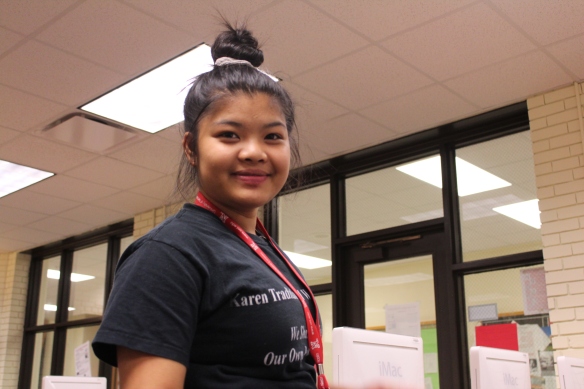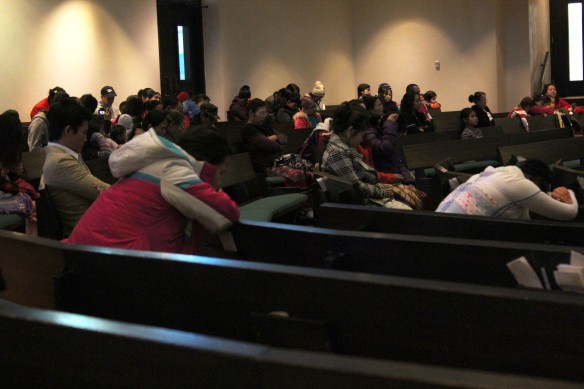 My name is Der Htoo and I was born in a refugee camp called Mae la located in the Tak province and Tha Song Yang district of northern Thailand on April 11, 1998. For some unknown reasons when I was born, I was awfully dark for an Asian baby, which was taboo. Some of the most memorable moments of my life come from growing up in the camp, even though I was really young at the time. I recall being the most handsome looking kid a mother and father could’ve ever raised or made. Well, that’s what I thought.
My name is Der Htoo and I was born in a refugee camp called Mae la located in the Tak province and Tha Song Yang district of northern Thailand on April 11, 1998. For some unknown reasons when I was born, I was awfully dark for an Asian baby, which was taboo. Some of the most memorable moments of my life come from growing up in the camp, even though I was really young at the time. I recall being the most handsome looking kid a mother and father could’ve ever raised or made. Well, that’s what I thought.
Growing up in the camp, mom and pop couldn’t afford a lot for us. They rarely made money since my pop was the chief of our zone, which often caused him to be super busy at most times, and mom had 6 children on her hands to look after. If they ever did make money, it went towards our family’s daily stomach fills. My grandma was the actual breadwinner of the family. Already at her prime, she worked non-stop at a hospital, where the money she made, was money she gave to us for church offerings and sometimes to buy ourselves some snacks here and there.
I spent most of my time in the camp playing, like every other kid. However, my way of killing time was a bit out of the ordinary for a kid. I had a thing for making gun powder. I learned the formula from a local hunter near by our hut; with a little potassium nitrate, a bit of sulfur and a whole lot of luck, I ended up burning one of my eyebrows off and blowing up half of my neighbors bathroom. Even afterward, I stole their jug of water to dip my whole head in for the rest of the day. Speaking of stealing, I was the number one thief in the town. I would steal stuff I couldn’t afford or stuff I didn’t already have such as shoes, watches, shirts from people swimming in the river, local Thai soldiers’ vegetables plants that caused me to get some good chasing by the soldiers and a lot more including getting shot at once. I got so good at stealing, I stole one of my dad’s friend’s money while he slept and I stole some eggs from the parents of my ex girlfriend while they were watching me. You’re probably wondering how’s that possible, well I have no idea. They probably just thought to themselves while watching me…”This kid believes he’s so slick, we’ll just let him be.”
Days became weeks, weeks became months, months became years and years flew by as if they had wings, and the time to move to the U.S. had finally come. Honestly none of us wanted to come, but we needed the resources and opportunities that weren’t available for us in the camp such as education and Wi-Fi. Also the Thai government, during that time, threatened to send us refugees back to Burma and let us get shot to death while crossing the river that was well over our head. I think any sane person would say, “hell no” to that. So we packed up the little bit of belongings that we had and boarded a giant bus with tears on our face on the last day which was July 3, 2007. We got on the first plane at Suvarnabhumi Airport. Everything was awful. The airplane ride was awful, the food was extremely awful, and the bathroom was super extremely awful, because I accidentally locked myself in the bathroom and spent most of the ride sitting on the toilet waiting for someone to save me before the landing.
Finally, we made our first stop at Incheon international Airport in Seoul, South Korea and ohh my gosh those lady servants on the planes were so cute, I thought they’d all make good housewives.They were also very kind. I remembered us having to wait almost a whole day in Incheon airport because of some unknown reasons. Anyways, so we waited and waited, jet lagged and all, it felt like forever. Some Korean lady working there happened to sympathize with us skinny refugees and brought us some sandwiches. It’s hard to not notice a group of skinny people walking around with big colorful striped bags looking like one of those starving children in the commercials you always see on T.V, but most people could care less. I had lost my appetite at the time, we all did, but I was touched by her actions.
Post written by April Paw







